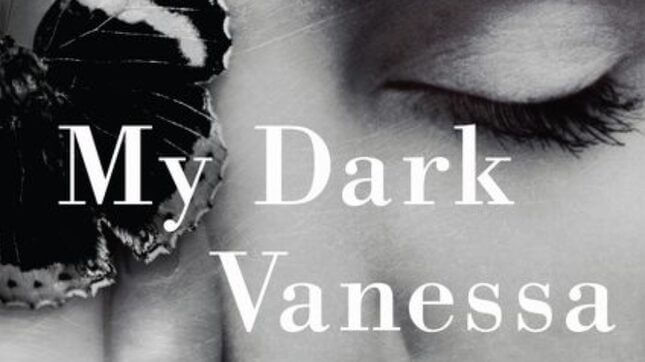Kate Elizabeth Russell on My Dark Vanessa and the 'Early Aughts Lolita Complex'
In Depth

In 1999, Britney Spears appeared on the cover of Rolling Stone in a black bra and polka-dot panties, clutching a stuffed Teletubby in one hand and a pink princess phone in the other. Beside her, a caption calls her a “Teen Dream,” and in the first line of the accompanying interview, Steven Daly writes, “Britney Spears extends a honeyed thigh across the length of the sofa, keeping one foot on the floor as she does so.” At the time, Spears was 19, but her videos still featured her dancing down lockered hallways and wearing a prep-school uniform.
I think about that Rolling Stone interview a lot as an example of the distorted sexual messages she and I and all the other girls of the ’90s learned about sexiness, chastity, and how much blame to shoulder for our own objectification. Kate Elizabeth Russell, author of My Dark Vanessa, tells me that she does as well, and the overlap of what she calls the “early aughts Lolita complex” and her own decades-long fascination with Vladimir Nabokov’s Lolita has resulted in her debut novel, which at once serves as a complicated portrait of the psychological toll of sexual abuse and an indictment of a culture that still doesn’t quite understand that Lolita is not a love story.
My Dark Vanessa chronicles the sexual abuse and complex PTSD of a 14-year-old victim groomed and assaulted by a teacher at an elite prep school. The narrative flashes backward and forward, juxtaposing the abuse with a troubled adulthood in which the titular Vanessa desperately frames her abuse as a love affair in order to preserve her own fragile sense of self.
Reviews of the book keep calling it a “love story” in an effort to explain that it’s not a love story. One interview began with an explanation that Russell herself had never actually been raped by a teacher, as if that matters. And perhaps the confusion around how to talk about My Dark Vanessa comes from the long-normalized cultural practice of assigning sexual agency to girls as justification for the actions of grown men, from Lolita’s Dolores to famous teenagers like Spears and Fiona Apple, without ever asking any uncomfortable questions about whether that normalization enables abusers and silences victims. For example, the copies of Lolita that both Russell and I owned in the early 2000s featured a blurb by Vanity Fair that read, “The only convincing love story of our century.”
But while the upsetting legacy of Lolita as a seductive love story endures (in My Dark Vanessa it’s actually used as a secret gift from the middle-aged male teacher, Jacob Strane, to groom and test Vanessa), novels centering the child victim as the protagonist are thin on the ground. NPR’s review lists Kate Walbert’s His Favorites and Susan Choi’s Trust Exercise as two of the “best” recent examples. And pending the novel’s release, author Wendy Ortiz called the book “eerily” similar to her own memoir Excavation on Twitter. Though Ortiz later clarified that she wasn’t accusing Russell of plagiarism, and reviewers have noted that the stories have little in common outside the premise of an older teacher assaulting a student. But there is something to be said for how uncannily familiar the abuse seems, and not just because of the narrative’s reliance on Lolita. From my high school alone, I can think of two instances of rumors of classmates having “affairs” with male teachers, allegations that circulated in whispers as the men quietly transferred to other schools. And while NPR dismisses Vanessa as “unlikable” and the book as a “too long” narrative feeling “crafted to a fault,” its story, along with those of authors like Ortiz, is an important indicator of a cultural shift in the ways we talk about teenage girls and abuse.
Recently, Russell spoke with Jezebel about Lolita, Spears, and the evolving study of trauma theory, all of which played a part in the writing of My Dark Vanessa. This interview has been edited and condensed for clarity.
JEZEBEL: Lolita plays an important role in My Dark Vanessa. In the middle of MeToo, is there still a place for a novel like Lolita?
KATE ELIZABETH RUSSELL: I think so, but obviously I’m biased in that I have such a close relationship with that novel. I just love it.
That’s interesting because reading My Dark Vanessa, I couldn’t tell if you loved it or hated it.
-

-

-

-

-

-

-

-

-

-

-

-

-

-

-

-

-

-

-

-

-

-

-

-

-

-

-

-

-

-

-

-

-

-

-

-

-

-

-

-








































